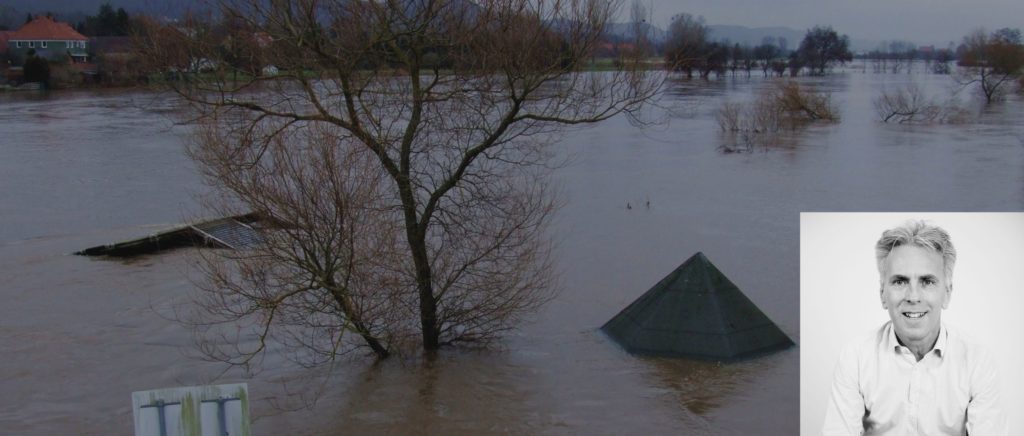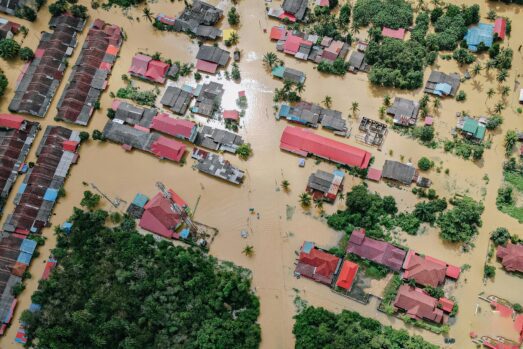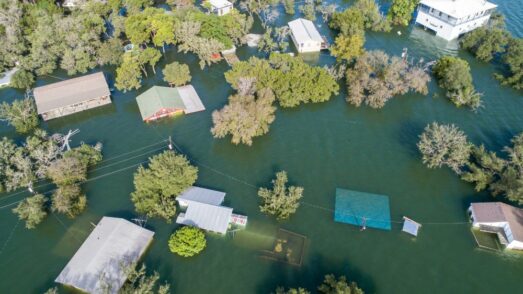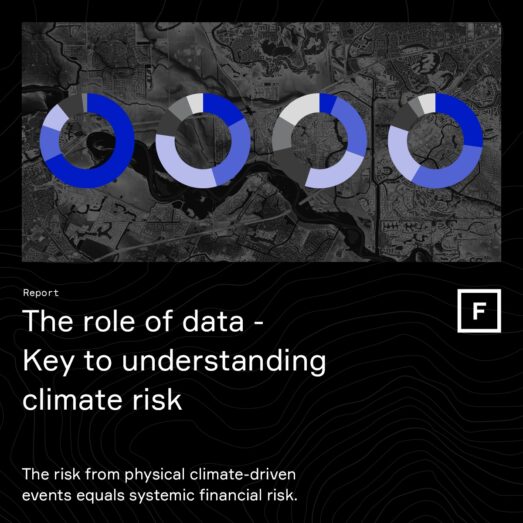
The UN’s IPCC (Intergovernmental Panel on Climate Change), has released a new report named “Climate Change 2022: Impacts, Adaptation, and Vulnerability”.
This is the Working Group II contribution to the IPCC Sixth Assessment Report, which reviews vulnerabilities to climate change as well as the impact of climate change on ecosystems, biodiversity, and communities both globally and regionally.
In the IPCC report, a clear correlation between socioeconomic conditions and vulnerability to the impact of climate change has been found. The results outline that between 3.3 – 3.6 billion people reside in locations that have high vulnerability to climate change.
This reinforces our recent findings reported in Nature Climate Change that future increases in flood risk in the US will disproportionately affect low-income and predominately African American populations.
Furthermore, the IPCC WGII report outlines that there is a small window of opportunity to limit anthropogenic warming to 1.5 degrees Celsius above pre-industrial levels and so reduce the worst impacts of climate change.
Fathom Research in the Report
Each chapter of the report focuses on a different aspect of climate change impact. Chapter four, “Water”, assesses the impact of climate change on water-related risk and opportunities for adaptation.
We are pleased to say that Fathom’s Senior Developer, Dr Peter Uhe, was a contributing author for chapter four of the report on water. This involved inclusion of his diagram (figure below) which outlines global precipitation projection.
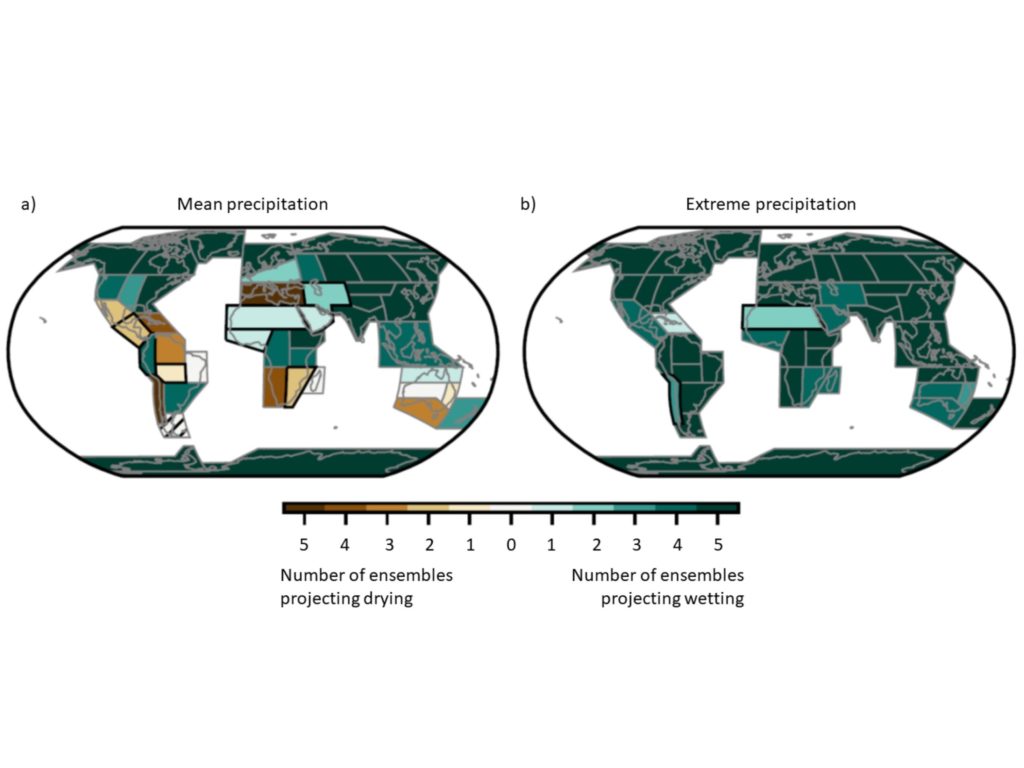

The diagram represents changes in mean precipitation and extreme precipitation on a global scale, comparing different ensembles of climate model simulations to see how much they agree on changes in rainfall. This research was part of Peter’s PhD at the University of Bristol, in a research article “Method Uncertainty Is Essential for Reliable Confidence Statements of Precipitation Projections”, published in the Journal of Climate.
“It really hits home the evidence around how much impact climate change has already had, for example by increasing the frequency or severity of floods and droughts around the world, changes which are only going to increase in the future.
Adaptation is crucial for our future society and many aspects of adaptation measures were covered, including limits to adaptation, noting the benefits of including indigenous and local knowledge for adapting water management practices.”
Dr Peter Uhe
Key Research Paper Findings
In Peter’s research, levels of precipitation projection agreement were based on five modeling activities: CMIP5, CMIP6, HAPPI, UKCP18 & HELIX.
The research found that for mean precipitation, in four regions: northern Central America, the Sahara, southern East Africa, and southern South America, two different modeling activities have significant changes with opposite signs, between current climate and 1.5°C. However much greater confidence in changes in extreme precipitation was found, with all significant changes across the world showing increases in extreme precipitation.
Changes in precipitation in North America and Eurasia were found to have the strongest agreement across modeling activities at a 1.5°C warming level. Further to this, it was rare for estimates of each modeling activity to be in complete disagreement as an overlap was found for almost all regions.
As a result, the paper concluded that factoring in “method uncertainty” is important for reliable precipitation change confidence statements. Importantly, it proves that there shouldn’t be an overreliance on just one modeling activity and rather a multimethod approach can be the most reliable.
This is an important reflection when considering the IPCC report which synthesizes many studies based on different combinations of climate model ensembles.
Comments by Professor Paul Bates
Fathom’s Chairman, Professor Paul Bates CBE has commented on the results of the latest report. Find out what he has to say on the latest findings below.
“The striking finding of the Working Group II report is the small window of opportunity we now have to keep within 1.5°C of warming above pre-industrial levels. The pledges made by countries at the recent COP26 summit in Glasgow are progressing but do not get us there. Nevertheless, the clear scientific consensus is that climate change impacts grow significantly with any warming beyond this level.
At future COPs we really need additional commitments to be made by nation-states to reduce their carbon and methane emissions. That is important because the clear consensus of the scientific community, as detailed in the working group II report, is that climate change impacts grow significantly with any warming beyond 1.5 degrees celsius.”
Prof Paul Bates
Climate-related Flood Risk
In terms of flooding, the report is very clear that there’s high confidence that the magnitude, frequency, and seasonality of flooding are going to change in many regions.
The projected increases in flooding will pose greater risks and there are medium confidence projections of what that might be at particular warming levels.
The report also makes clear that the regional differences here are stark, and that’s because of the strong influence of socioeconomic conditions on flooding and the significant uncertainty we still have in flood hazard projection.
For a long time, we have known that an increasing frequency of natural hazards due to climate change would likely lead to increased economic losses, but for the first time, the report also provides compelling evidence of the links between these events and human health, food security, mortality, and population displacement.
Increased Rainfall and Sea Levels
However, we know quite a lot about the increased frequency of intense rainfall in the future and we have some confidence about that. We’re also quite confident that we’re going to face a degree of sea-level rise by the end of the century, which will be anywhere between 20cm – 70cm in the UK.
In addition, snowmelt floods are likely to decrease, but there is still a lot of uncertainty around the impact of climate change on floods. Furthermore, lots of the statements about flooding in the IPCC Working Group II report have only medium confidence.
What we plan to do
Taking the IPCC report into account, Fathom’s job over the reporting period for the next 6-7 years is to move the needle on those assessments, to undertake the scientific studies that allow us to have higher confidence in our projections of climate change impacts on flooding.
That’s a significant scientific challenge, but it is both necessary and exciting to help meet.


